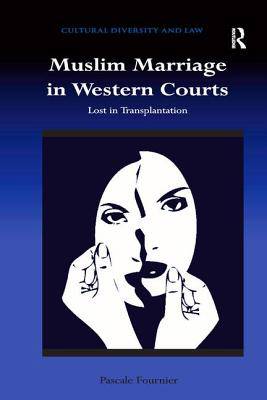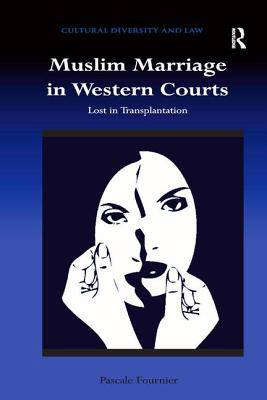
- Retrait gratuit dans votre magasin Club
- 7.000.000 titres dans notre catalogue
- Payer en toute sécurité
- Toujours un magasin près de chez vous
- Retrait gratuit dans votre magasin Club
- 7.000.0000 titres dans notre catalogue
- Payer en toute sécurité
- Toujours un magasin près de chez vous
290,45 €
+ 580 points
Format
Description
This book describes and analyses the notion of Mahr, the Muslim custom whereby the groom has to give a gift to the bride in consideration of the marriage. It explores how Western courts, specifically in Canada, the United States, France, and Germany, have approached and interpreted Mahr. Although the outcomes of the cases provide an illustrative framework for the book, the focus is broader than simply the adjudicative endeavours. The work explores the concept of liberalism, which purportedly champions individuals and individual choice concurrently with freedom and equality. Tensions between and among these concepts, however, inevitably arise. The acknowledgment and exploration of these intertwined tensions forms an important underpinning for the book. Through the analysis of case law from these four countries, this study suggests that transplanting Mahr from Islamic law into a Western courtroom cannot be undone: it immediately becomes rooted in the countries' legal, historical, political, and social backgrounds and flourishes (or fails) in diverse and unexpected ways. Rather than being the concept described by classical Islamic jurists, Mahr is interpreted according to wildly varied legal constructs and concepts such as multiculturalism, fairness, public policy, and gender equality. Moreover, Islamic law travels with a multiplicity of voices, and it is this complex hybridity (a fragmented and disjointed Mahr) which will be mediated through Western law. Returning to the overarching concept of liberalism, the book proposes that distributive consequences rather than recognition occupy central place in the evaluation of the legal options available to Muslim women upon divorce.
Spécifications
Parties prenantes
- Auteur(s) :
- Editeur:
Contenu
- Nombre de pages :
- 228
- Langue:
- Anglais
- Collection :
Caractéristiques
- EAN:
- 9781409404415
- Date de parution :
- 28-09-10
- Format:
- Livre relié
- Format numérique:
- Genaaid
- Dimensions :
- 156 mm x 234 mm
- Poids :
- 498 g

Les avis
Nous publions uniquement les avis qui respectent les conditions requises. Consultez nos conditions pour les avis.






